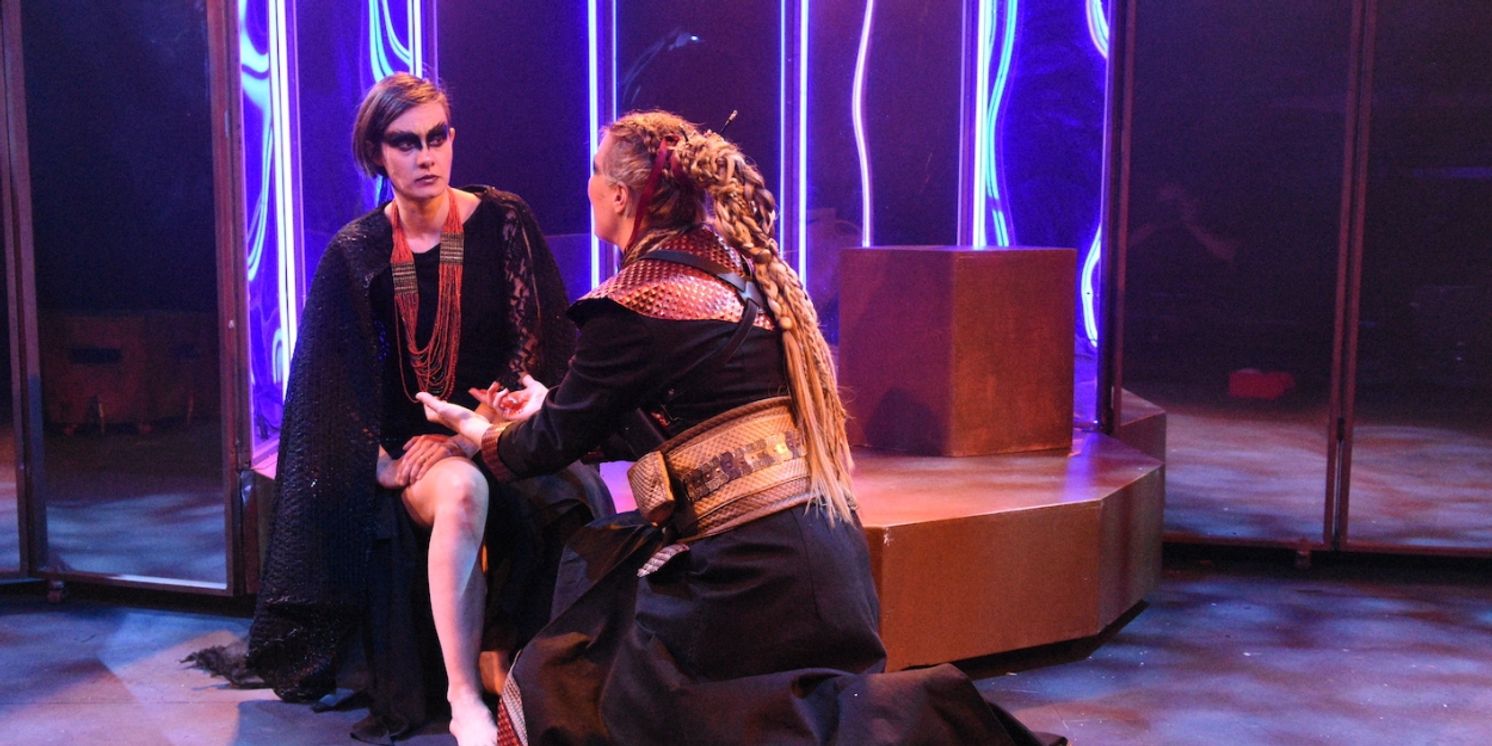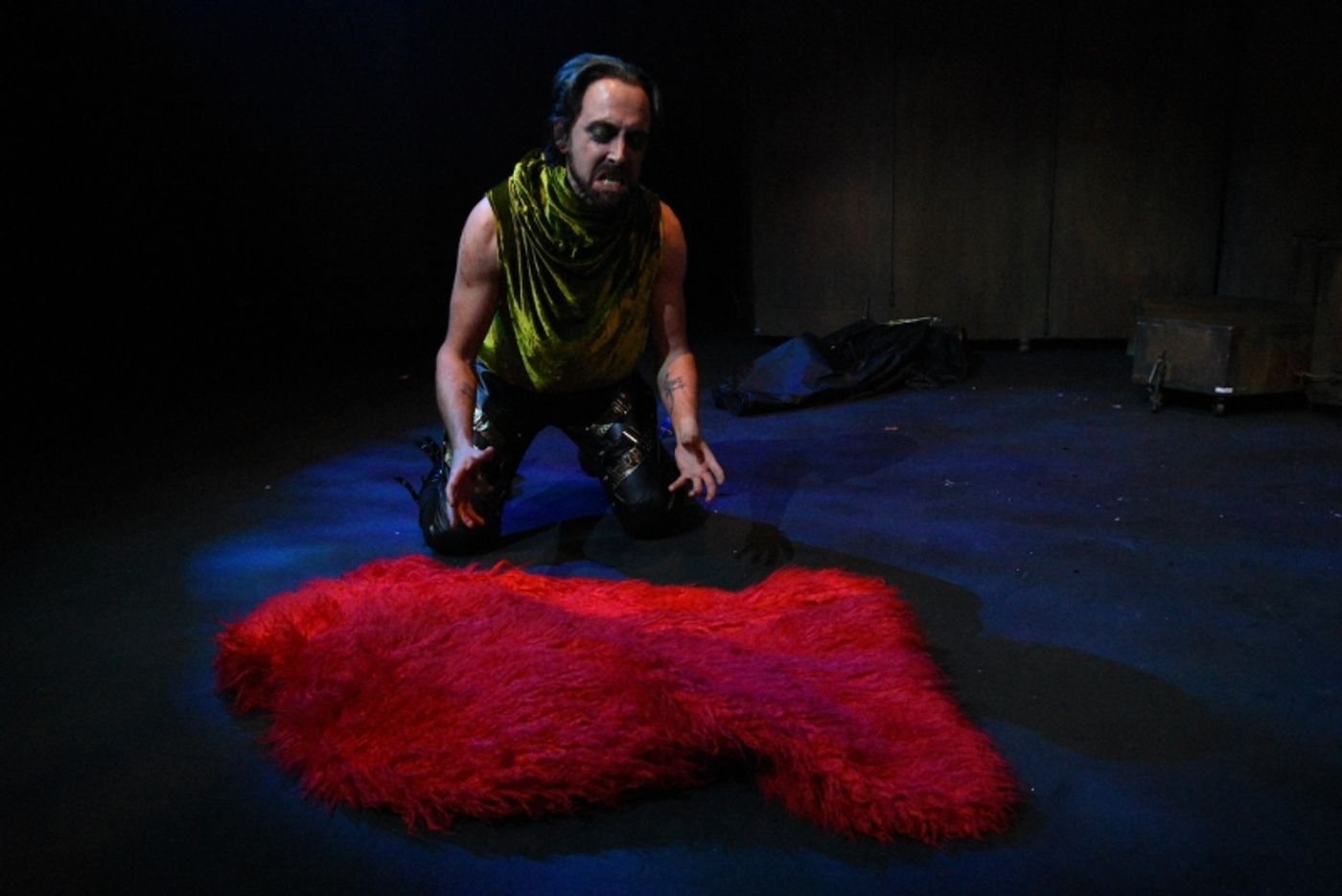Review: JULIUS CAESAR, Southwark Playhouse
Futuristic, inclusive production retains the penetrating insights on the psychology of power

 Icarus Theatre tell the story of another man who flew too close to the sun, brought down to earth by his hubris in a bloody assassination. But this is no swords and sandals, toga tugging, funny things happening en route to the forum saga, but a futuristic, MadMaxian murderfest, Caesar a digital presence, conspiracies hatched online as much as in person, messages swiped away, enemies swiped left and wiped out.
Icarus Theatre tell the story of another man who flew too close to the sun, brought down to earth by his hubris in a bloody assassination. But this is no swords and sandals, toga tugging, funny things happening en route to the forum saga, but a futuristic, MadMaxian murderfest, Caesar a digital presence, conspiracies hatched online as much as in person, messages swiped away, enemies swiped left and wiped out.
Shakespeare’s words are still very much present, albeit with some cuts and changes, the psychology of the play more foregrounded than its poetry. The text isn’t just heard though, it’s seen, creative captioning integrating the speeches we hear with the speeches we see more seamlessly than would conventional surtitles, multiple screens indicating who is speaking as well as what they’re saying. The focus is on inclusivity, not just for the hearing-impaired, but for the many who habitually watch television with the subtitles on (yes, I’m one). For theatre, this experimental approach marks an advance, but it’s not quite there yet.
With parallels to today’s politics so clear it didn’t need the programme to remind us, Caesar coyly denies the crown, while moving inexorably, and comfortably, towards the status of a dictator. That’s too much for Cassius, affronted not just by the quashing of democracy (one limited to Roman citizens, lest we forget) but by the personal slight too, the senator believing Caesar to be a lesser man than himself.
To make the conspiracy stick, he needs Caesar’s great friend, the high-minded, naive Brutus to make the unkindest cut of all and the honorable man, mediating the morality of murder to assuage his guilt, joins the stabbers and becomes their de facto leader. Fatally, he underestimates the jockish Mark Antony, who, initially motivated by his grief and his disgust at the actions of the conspirators, soon sees a direct route to power for himself. Through the chaos of civil war, the ruthless operator gets it. As ever, Shakespeare has one eye on his own monarch - no good can ever be allowed to come of regicide.

The ensemble cast play all the roles (and never has it been easier to cope with that approach, as creative captions tell us exactly who’s who) in a production that director, Max Lewendel, brings in at a user-friendly two hours including an interval - more inclusivity there, with the current trend for DVT-inducing 100 minutes plus all-through shows thankfully rejected.
The line readings vary, many delivered too quickly to bear the weight they carry. Michael Skellern gives Cassius an intellectual authority, finding the poetry in the blank verse. James Heatlie is more conversational in Mark Antony’s celebrated funeral oration, reminding me a little of Andrew Scott’s approach to Hamlet’s soliloquy at The Almeida a few years ago. Interesting, but the slow build of power was lost a little as the mob, at its most biddable, swiftly turns to putty in his hands.
Whilst gender-blind casting is essential in Shakespeare since so many of the roles are male, not for the first time casting a woman as Brutus failed to work. Rowan Winter delivers the part perfectly well, but the combination of shifting pronouns and the pitch of the female voice in delivering the lines, jars on the ear. Maybe it’s something to get used to, but I’m unsure as to how the issue can be addressed for those of us used to its original casting (when men played women, I know).
Some 45 years ago, I did Julius Caesar for O-level English Literature (Grade B, since you ask) attracted first to its action, later to its politics and finally to its poetry. In the intervening four and a half decades, it resonates more and more as the same people continue to make the same mistakes about the same people. I might not have appreciated it at the time, but there were life-lessons dispensed, second period, Wednesday mornings. But, you know, arts education - waste of time isn't it...?
That’s the best feature of this pared-back, teched-up production (projection design by Will Monks - it will appeal to audiences who might not otherwise embrace Shakespeare readily. From teens (though they do need to be okay with the violence) to those old enough to have ears as bad as Caesar’s, everyone can find plenty to thrill them, and plenty to think about, in this innovative show forging a new and necessary path for theatre's future.
Julius Caesar at Southwark Playhouse until 5 October
Photo images: Adrian Warner
Reader Reviews
Videos

